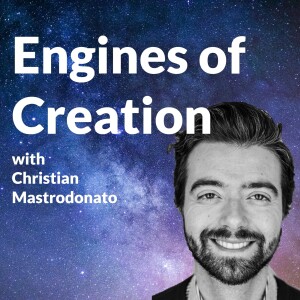
In this episode we are meeting a wonderful guest, Luca Minudel, an expert agile practitioner who works at the forefront of novel methodologies to improve the way we work and create value. Luca worked in very interesting companies, as we’ll soon find out, but more importantly he is also a practitioner of Complexity Thinking and he wrote a very helpful book titled Living complexity, about how to manage and exploit Human complexity.
Talking about the definition of complexity and human complexity, Luca shared practical examples of complex problems, like COVID-19, conflicts between stakeholders, limited information/understanding, and constantly changing issues. Emphasising the importance of adapting approaches based on the degree of complexity.
We also talked about his book "Living Complexity", and how in the process of writing it Luca discovered three "regions" of practices - self-organisation, assessing/adapting to complexity, and organisational practices, providing practical tools for dealing with complexity across these three regions.
In particular we discussed on how frameworks like Cynefin can be useful starting points for assessing complexity, also going through an example to help categorise project complexity levels.
On the relationship between agile and complexity, Luca sees agile methods as tools to help absorb uncertainty and move problems from complex to complicated/ordered spaces. But he views complexity science and agility as broader than just agile software methods.
The conversation then shifts to Luca's process of writing his book, "Living Complexity." Discussing how the book went through several versions and iterations, guided by feedback and further research. We highlighted the significance of being a practitioner and implementing ideas in real-world scenarios. Luca believes that practical application is essential for truly understanding and harnessing the power of complexity.
As the discussion continues, Luca delves into the characteristics of a leader in the face of complexity. He stresses the importance of awareness, both of oneself and the system in which one operates. Collaboration and involving those affected by decisions are also crucial, as complex problems require diverse perspectives and collective intelligence. Resilience is another key trait, as complex issues often evolve and demand ongoing attention. Finally, transparency is vital to foster trust and create an environment where complexity can be navigated effectively.
Overall, Luca's insights provide a thoughtful list of qualities to reflect on, giving us a fresh perspective on complexity and its role in our lives. He challenges the notion that complexity is always negative and encourages embracing it as a source of joy and growth. By understanding and applying complexity in practical ways, we can navigate complex problems more effectively and lead with greater awareness and resilience.
References:
Living Complexity - Luca Minudel
Cynefin - Weaving Sense-Making into the Fabric of Our World Paperback
How we can teach children so they survive AI – and cope with whatever comes next
No comments yet. Be the first to say something!